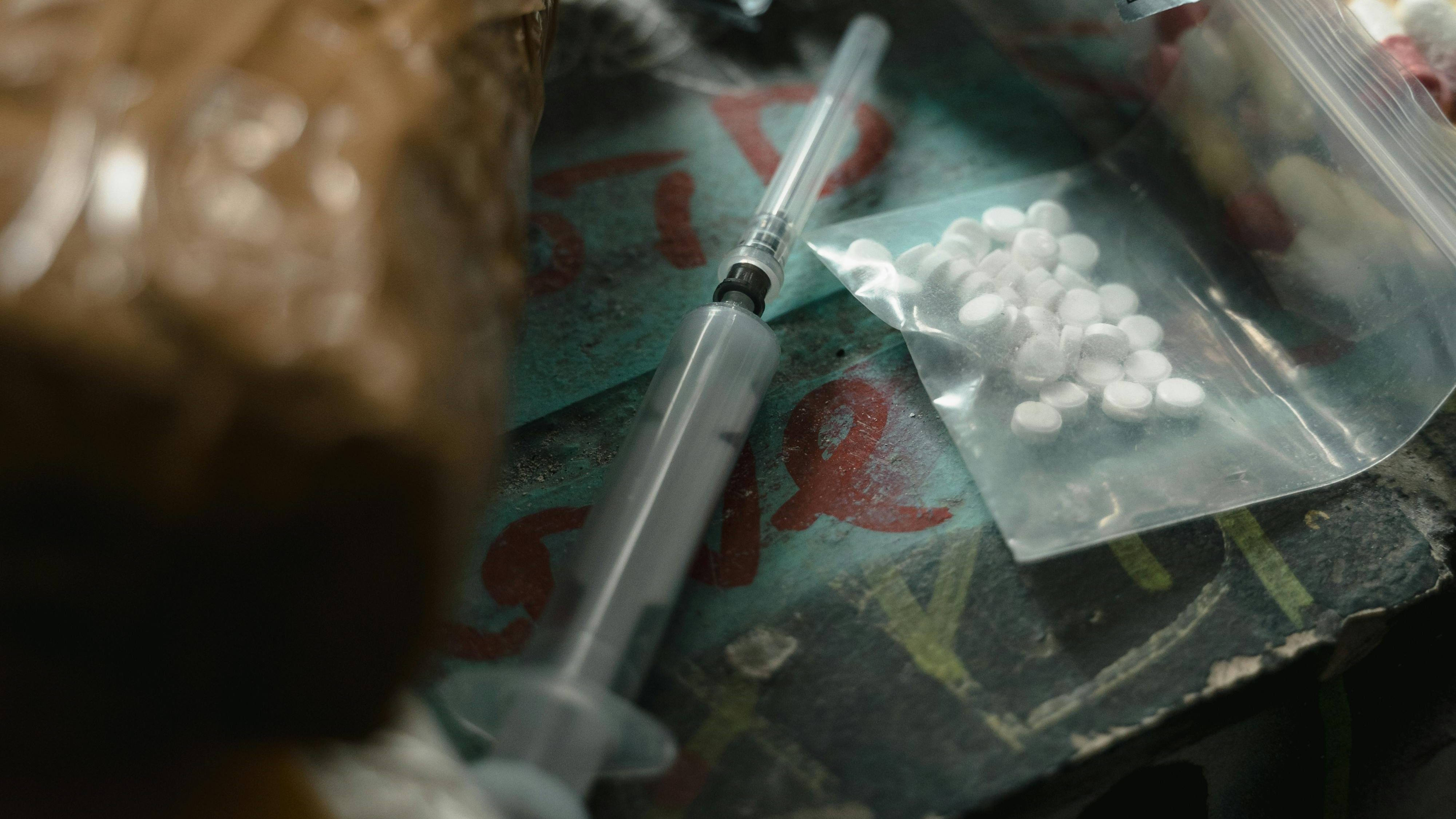Read more:
The threat in Scotland adds to mounting deaths across the UK. From June 2023 to January 2025, there have been at least 400 deaths in the UK involving nitazenes, with lives lost in every region. As Big Issue reported, ambulance crews’ use of lifesaving drug naloxone has doubled, and deaths happen in clusters, often affecting those living in homeless hostels.
Britain’s new synthetic opioid crisis is not on the scale of the devastation fentanyl has wrought in America – where it is responsible for around 70,000 deaths a year and is the leading cause of death among 18-45 year-olds – but it has sparked a widespread government response, including a push for police forces to equip their officers with naloxone.
But Scotland’s figures show an emerging threat in a country dogged by drug abuse deaths with leaders battling to get the problem under control.
Priyadarshi, an associate medical director and senior medical officer for Glasgow Alcohol and Drug Recovery Services, warned of the consequences if nitazenes added to that picture in a widespread way.
“If nitazenes were added into that mix, then obviously the impact would be devastating,” he said.
Advertising helps fund Big Issue’s mission to end poverty
”At the moment, it’s far too much but it does seem to be relatively isolated. But if it was introduced and more freely available, then I would be very, very worried.”
Opening in January this year after a decade of legal wrangling, The Thistle is the UK’s first space where people can come to use drugs in a supervised, safe environment. It is part of a harm reduction approach which Glasgow’s authorities hope will reduce the number of drug deaths. Now it finds itself playing a role in dealing with synthetic opioids, not just preventing fatal overdoses but getting samples tested and getting the word out about dangerous drugs.
Yet outside the consumption room, there are calls to move faster on other measures which could stop deaths.
“Scotland does like to blow its own trumpet about how progressive we are, and certainly in terms of drugs policy, on paper we are rights-based, we take a public health model,” said Justina Murray, chief executive officer of Scottish Families Affected by Alcohol and Drugs (SFAD).
“But actually we have more deaths than anywhere else in the UK or Europe. And when you look at what’s actually being delivered on the ground, it’s not actually rights-based, it’s not a public health model.”
SFAD is one of Scotland’s largest providers of naloxone, handing out 1,230 kits in the first three months of 2025, and runs the country’s only “click and deliver” service for the life-saving drug.
Advertising helps fund Big Issue’s mission to end poverty
Initially launched targeting family members of those using drugs, the service now has a much wider reach: security guards, housing officers, taxi drivers, and more request naloxone. Family members now make up just 5% of those receiving kits.
Access to the drug – offered as an injection or nasal spray – can be patchy, warned Murray. “There are still issues. We find that pharmacists, for example, some of them are very progressive in terms of issuing naloxone if somebody walks in and asks for it. Other people are like, ‘Oh no, we can’t do that’. So there’s a kind of postcode lottery,” Murray said.
Those dying from nitazenes rarely intend to take them. Instead, the potent synthetic opioids contaminate drugs like heroin and benzodiazepenes. But knowing what is in drugs before they are taken remains difficult. Drug checking sites have been proposed in Glasgow, Aberdeen, and Dundee, with applications made for the Home Office.
“It just seems to have been pretty glacial,” said Murray on the progress made. “If you want to check what’s in your drugs, you have to send them to Wales. That’s the only option until you die and then they’ll tell you which drugs were in your body. That just seems absolutely ridiculous.”
Priyadarshi also said drug checking services could help The Thistle inform its users about what was going round. “The one thing we don’t have in this country that we could benefit from are drug checking services,” he said.
In the meantime, he expected deaths from nitazenes to rise, with updated statistics expected this month. “I’d be very surprised if that doesn’t show quite a high number of, at least, ambulance and non-fatal overdoses, if not suspected drug-related deaths,” he said. “Because we continue to receive reports of these events in the community where ambulance service and others have been called.”
Advertising helps fund Big Issue’s mission to end poverty
Do you have a story to tell or opinions to share about this? Get in touch and tell us more.
Reader-funded since 1991 – Big Issue brings you trustworthy journalism that drives real change.
Every day, our journalists dig deeper, speaking up for those society overlooks.
Could you help us keep doing this vital work? Support our journalism from £5 a month.





